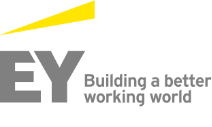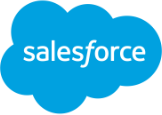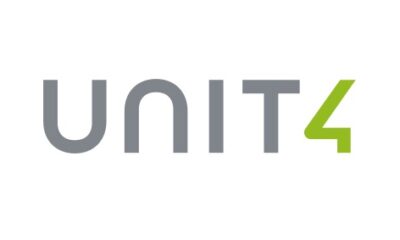## Mini basket to go here ##
Taking the PULSE of GSK’s flagship international corporate volunteering
In a series of articles over the coming months, our Corporate Volunteering Lead, Amanda Bowman discusses with organisations what makes their corporate volunteer programmes successful and looks at how their programmes hold up to the Emerging World’s new standard for Corporate Volunteering for the 2020s. The Standard includes a set of five Principles for all employees, everywhere to provide an overall strategy and approach to corporate volunteering that can be applied to an volunteering programme to augment what’s already working or as a framework for a new corporate volunteering initiative.
In the first of our series Amanda interviewed Emma Stewart to look back at ten years of the GSK PULSE programme.
The programme started in 2009, when fifty employees from different parts of the world – from Azerbaijan to Bolivia, from El Salvador to Ethiopia, and from Tajikistan to Tanzania – paused their lives to help NGOs and communities in need. Some travelled overseas while others stayed closer to home, but whatever the destination, the first wave of PULSE volunteers started what has become a movement in GSK over the last ten years. Today over 800 employees have been part of PULSE and the company evaluates that this has been worth the equivalent of £29m in kind to civil society.

The programme sends employees to work with NGOs full time for three to six months to use their skills and knowledge to create positive sustainable change in the NGO and the communities they serve. Their job back at GSK does not get filled in their absence and they continue to receive their usual pay and benefits. They simply hit the pause button on their normal day job and in return they help others while developing themselves.
Each assignment is created by the partner NGO and is ‘need driven’. The NGO determines what opportunity or challenge they need help with and in what geography. Employees are then matched based on their skillsets and development objectives. What the company has discovered is that a loaned GSK employee is not merely filling any resource or talent gap, but they can also help build the capacity of the NGO in the longer term.
Employees are transformed by the experience and this been found true both for those that travel 3,000 miles or those that hop off the bus a couple of stops before their normal work location. In both cases, employees experience the difference in culture within the NGO and ‘bring the outside in’: to the NGO when they are on assignment and back to GSK by sharing the patient or community experience. Irrespective of location, PULSE volunteers see GSK’s purpose playing out in practice and report on the richness of their experience, their learning and the impact of their input on their partner organisation. Dan Millard, General Manager of GSK in Vietnam has commented on how having a programme like PULSE also impacts his employees in terms of their pride in the company and their appetite to engage in local volunteering programmes as a result.

Bu, a 2018 PULSE volunteer completed her assignment with Save the Children International in London as a Pneumonia Centenary Commitment (PCC) Global Coordinator. The PCC is a global campaign to end preventable deaths from pneumonia. Bu’s assignment was to develop comprehensive pneumonia strategic plans in each of Save the Children’s 9 “Beacon Countries”. Bu reflects on her assignment saying:
“I supported building plans for countries affected by high child pneumonia deaths in Africa and Asia to make a sustained, tangible difference to improving child health. Collaboration was key and I returned to GSK with a renewed sense of professional purpose and commitment to strengthening our internal and external partnerships.”
Save the Children has been a PULSE NGO partner since the very beginning of the programme in 2009 and have received 124 volunteers in over 35 different countries. Kath Price, Head of Partnerships at Save the Children reflects that:
“PULSE is an integral part of our innovative partnership with GSK and has made a lasting contribution to our ambitious aim of helping build a world where no child under the age of five dies from preventable causes.”
The programme has evolved over the ten years. One area that needed attention was the support offered to employees when they return from assignments. This has led to many process changes including seeking support from the CEO’s office to ensure managers understand their responsibility in reintegration, offering innovation challenges and forums to hear ideas that returning volunteers brought back with them and ensuring that employees had a support network on their return – alumni buddies, mentors and coaches.
Since 2018, the focus has shifted to improving and aligning assignments to employee development and ensuring the selected assignments not only offered challenging tasks, but also offered a solid support system that makes the experiences rewarding for both volunteers and NGO partners alike.
Emerging World has identified five Principles that companies can apply that create a new Standard for corporate volunteering for the 2020s or what we call CV20². This builds on the best of what we’ve seen in programmes like the GSK PULSE Programme. For us, a CV20² Programme is:
| Emerging World Principles | GSK PULSE |
| Partner focused with opportunities that are designed to meet partners’ real needs. When programmes are designed to meet real partner needs, we see strong results from employees in terms of breadth and depth of learning, employee engagement, business impact, responsible leadership and connection to corporate and personal Purpose | As part of the reshaping of the programme, PULSE now aligns its partners and assignments with its Global Health Strategy. By using the company’s science to fight infectious diseases that impact children and young people in the developing world with a focus on HIV, malaria and TB. This way, the programme can have the biggest impact on the health of undeserved populations. |
| Reciprocal in terms of learning – where employees and partners learn from each other so that the volunteering is authentic, balanced and that any outcomes and impact are sustained |
GSK volunteers share their skills so that the NGO partners fill their skills or resource gaps, but they also build the capacity of the organisation to ensure sustainability of impact. The volunteers bring back the knowledge and skills development they receive from the experience – and have the opportunity to share that as part of their reintegration. |
| Engaging employees by building culture, morale, motivation, pride and productivity. Recent research shows that 81% of employees were inspired to contribute more to their roles after they return from volunteering |
Even those that don’t apply for the programme are proud that this is offered as an opportunity at GSK and the causes that PULSE supports. In 2018, PULSE won the International Association for Volunteer Effort Inspiring Practice Award for a global company that has created a high impact volunteer initiative desgned to meet a specific societal need – another opportunity for employees to feel proud of their company. |
| Skills-based and leverages the talents and skills of employees. The recently published CISL Impact Benchmark Study shows that when participants feel that their partners have a real need for their skills and expertise, they are more likely to report developments across a range of 12 leadership competencies and behaviours identified as important for successful global leadership. |
Employees see PULSE as part of their career and development plans. For some, they know they want to do it and identify when it best fits into their lives and careers – looking ahead to when it will best fit. When employees do apply, they ‘sign a blank check’ – they express a preference and any restrictions in terms of location, etc; but they could be matched anywhere based on partner need. The company recognises that PULSE is not for everyone. You need a passion for altruism, flexibility, resilience, people skills to manage complexity and of course the specific skills required by the partner. |
| Strategically embedded, helping to achieve business objectives and aligned with corporate Purpose. Our Study showed that 73% of employees reported increased alignment with their company’s objectives and priorities and 80% agreed that participation improved their understanding of the corporate Purpose. |
PULSE is managed within the Human Resources function and is positioned as a development programme. The programme contributes to the company’s global health agenda and is an expression of being a Modern Employer. All of these things are central to the overall GSK business strategy and makes PULSE set to contribute to overall goals. |
Emma gave us her top tips for building an effective corporate volunteering programme:
- Don’t resist the opportunity to refresh the programme regularly so that it continues to align with overall corporate objectives. That way, your corporate volunteering programmes will stay relevant and supported by senior management.
- Build in flexibility to your programme design so that it is both inclusive and diverse.
- Clearly align your volunteering scheme with the values of your organisation and, if possible, to the Sustainable Development Goals (SDGs) that your company aligns it’s activities to.
- Consider the skillsets of your employees and where best they can use their skills and knowledge to help partner organisations and the communities they serve.
- Find a senior stakeholder who will advocate for the programme at its inception.
- Have systems in place to measure the Impact of the volunteering programme. Surveys are a simple and effective tool.
If you want to find out more about GSK’s PULSE programme, please read the GSK 2018-2019 Employee Volunteering Annual Report . Content in this article has been drawn from the GSK report.






